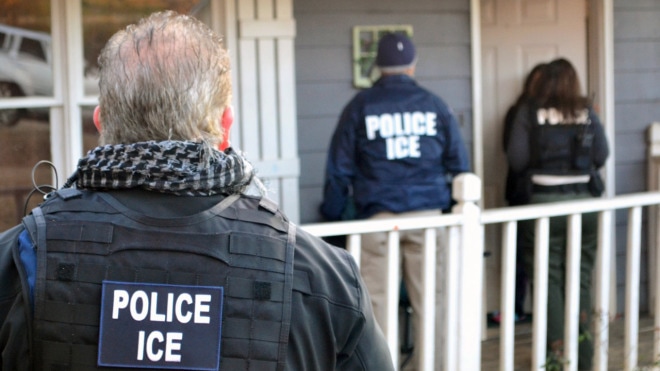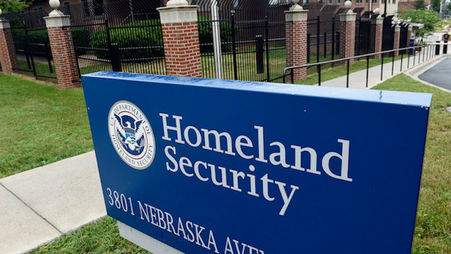
SUMMARY: Where there is substantial and probative evidence that a beneficiary’s prior marriage was fraudulent and entered into for the purpose of evading the immigration laws, a subsequent visa petition filed on the beneficiary’s behalf is properly denied pursuant to section 204(c) of the Immigration and Nationality Act, 8 U.S.C. § 1154(c) (2018), even if the first visa petition was denied because of insufficient evidence of a bona fide marital relationship.
Analysis: "The plain language of the statute and the regulation does not foreclose the application of the section 204(c) bar in cases where the prior visa petition filed on the beneficiary’s behalf was denied based on failure to establish a bona fide marital relationship, but the marriage had not been determined to be fraudulent.3 See Matter of R.I. Ortega, 28 I&N Dec. 9, 12 (BIA 2020) (stating that “[u]nder settled rules of statutory construction, we look first to the plain meaning of the language”). Instead, the broad phrasing and the absence of a temporal requirement suggest that section 204(c) may be applied based on a marriage fraud finding whenever it becomes evident that there is substantial and probative evidence of an attempt or conspiracy to enter into a marriage for the purpose of evading the immigration laws. Our prior precedent further supports this interpretation. In Matter of Kahy, 19 I&N Dec. 803, 804–05 (BIA 1988), we considered whether the District Director properly denied a subsequent visa petition under section 204(c) of the Act where the beneficiary’s ex-wife had indicated in a sworn statement that she agreed to marry him for $1,000 so he could remain in the United States, but she never actually sought an immigration benefit based on the fraudulent marriage because an unidentified person had forged her signature on the visa petition. Even though the beneficiary had not pursued an immigration benefit, we held that “where there is evidence in the record to indicate that the beneficiary has been an active participant in a marriage fraud conspiracy, the burden shifts to the petitioner to establish that the beneficiary did not seek nonquota or preference status based on a prior fraudulent marriage.” Id. at 806–07. Since the petitioner did not rebut the charge, we affirmed the denial of the visa petition. We similarly addressed the breadth of section 204(c) of the Act and the absence of a specific timeline for its imposition in Matter of Tawfik, 20 I&N Dec. at 168–69. In that case, the District Director revoked approval of the petitioner’s subsequent visa petition on the ground that the beneficiary had previously attempted to be accorded immediate relative status as the spouse of a United States citizen by reason of a fraudulent marriage. Id. at 166–67. In reviewing this determination, we stated that “[n]either section 204(c) of the Act nor the regulations specify . . . at what point” the determination of whether an alien has attempted or conspired to enter into a marriage for the purpose of evading the immigration laws may be made. Id. at 168. We also concluded that the Director “should not give conclusive effect to determinations made in a prior proceeding, but, rather, should reach his own independent conclusion based on the evidence before him.” Id. In that regard, we held that the approvability of the subsequent visa petition “will depend on a determination of whether there is, at present, sufficient evidence, inclusive of evidence relied upon in the determination of the first visa petition, to support the contention that the beneficiary’s previous marriage to a United States citizen was entered into for purposes of evading the immigration laws.” Id. at 168–69. Applying these standards, we found that the record lacked sufficient documentation to support the District Director’s conclusion that the beneficiary had entered into a fraudulent marriage, and we reversed the revocation of the visa petition. Id. at 169–70. The petitioner also contests the propriety of the Director’s finding that the beneficiary’s prior marriage was fraudulent. Evidence of a fraudulent marriage “must be documented in the alien’s file and must be substantial and probative.” Id. at 167. “[T]he degree of proof required for a finding of marriage fraud sufficient to support the denial of a visa petition under section 204(c) of the Act [is] higher than a preponderance of the evidence and closer to clear and convincing evidence.” Matter of P. Singh, 27 I&N Dec. 598, 607 (BIA 2019). Thus, “to be ‘substantial and probative,’ the evidence must establish that it is more than probably true that the marriage is fraudulent.” Id. “The application of the ‘substantial and probative evidence’ standard requires the examination of all of the relevant evidence and a determination as to whether such evidence, when viewed in its totality, establishes, with sufficient probability, that the marriage is fraudulent.” Id. In response to the Notice of Intent to Deny, the petitioner submitted a psychological report in support of her assertion that the beneficiary has memory problems, which she claims explain the discrepancies in his answers about his prior marriage. The Director provided reasons for discounting the psychological report. However, even crediting this evidence, the Director identified conduct of the couple after the marriage that, unrelated to any memory issues, indicates their subjective state of mind when they married. In particular, he concluded that the Summary of Findings detailing the September 21, 2012, site visit to the claimed marital residence establishes fraud. See id. at 609 (“Detailed reports from on-site visits and field investigations are especially important pieces of evidence that may reveal the presence of fraud.”). The Summary of Findings describes significant discrepancies in the accounts given by the beneficiary and his first wife regarding (1) whether and for how long the couple lived at the claimed marital residence; (2) their places and type of employment (and whether they, in fact, worked at the same store owned by the beneficiary’s father); and (3) the former wife’s living arrangements in Salem and the reasons why the beneficiary paid rent for her apartment there. Additionally, the record contains documentation of contradictions that arose during the beneficiary’s two visa interviews regarding how, when, and where he met his first wife, as well as how their relationship progressed to marriage. The petitioner submitted no new documentary evidence showing a joint life between the beneficiary and his first wife, apart from affidavits from the petitioner, the beneficiary, and the pastor who conducted the beneficiary’s first wedding ceremony. Affidavits of this nature, alone, “will generally not be sufficient to overcome evidence of marriage fraud in the record without objective documentary evidence to corroborate the assertions made by the affiants.” Id. The Director correctly conducted an independent determination based on the facts available when the petitioner filed the current visa petition. See Matter of Tawfik, 20 I&N Dec. at 168–69. In doing so, the Director permissibly relied on “relevant evidence, including evidence having its origin in prior [visa petition] proceedings involving the beneficiary.” Id. at 168. We conclude that the Director properly conducted an independent analysis of section 204(c)’s applicability in adjudicating the petitioner’s visa petition. In so doing, he did not erroneously equate the beneficiary’s first wife’s failure to prove the bona fides of their marriage with the beneficiary’s intent in entering into that marriage. III. CONCLUSION The fact that the visa petition filed by the beneficiary’s first wife was denied for failure to establish a bona fide marriage does not preclude the Director from denying the petitioner’s visa petition under section 204(c) of the Act. Moreover, having reviewed all the relevant evidence in its totality, we uphold the Director’s finding that there is substantial and probative evidence in the record that the beneficiary’s prior marriage was fraudulent and entered into for the purpose of evading the immigration laws. See Matter of P. Singh, 27 I&N Dec. at 607; Matter of Tawfik, 20 I&N Dec. at 167. We further conclude that the petitioner did not rebut this evidence when given the opportunity to do so. We therefore affirm the denial of the petitioner’s visa petition pursuant to section 204(c) of the Act."
See text of the decision here.









 RSS Feed
RSS Feed